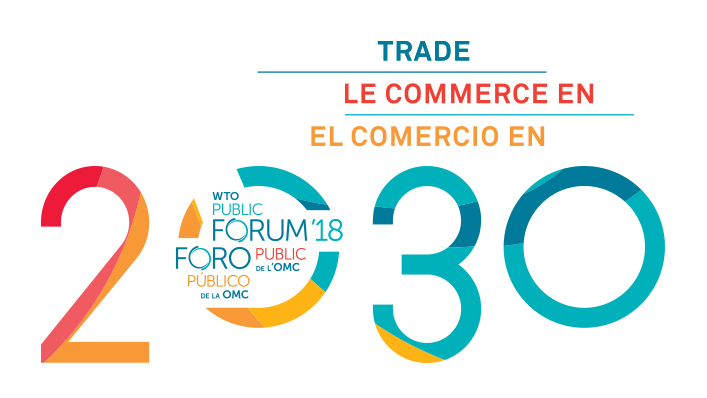Digital trade and cyber security: Catalysts for development?
4 Oct 2018 02:00h
Event report
The session was moderated by Mr Derek O’Halloran (Head, Future of Digital Economy and Society, Member of the Executive Committee, World Economic Forum (WEF)), who stressed the role of digital trade as the main instrument for achieving economic development. According to O’Halloran, without solving problems of inequality in Internet access, we will not be able to benefit fully from the fourth industrial revolution. We must ensure that digital skills and infrastructures are accessible to the different regions.
Mr Jarno Limnéll (Professor of Cybersecurity, Aalto University) said that cybersecurity is a real issue for everyone, everywhere. He pointed to ‘digital security’ as the main instrument of the digital economy. He highlighted the issue of trust which he identified as the key point in cybersecurity. Limnéll stated that cybersecurity is an issue of attitude. Security must be the first point to think about when it comes to digital development. He stressed two points; strategic issues, and the leadership issue. If there is no leadership, we have a crisis. When we are talking about the future of cybersecurity, we must combine those two points. He said that we have to remember that there is no difference between physical and digital security. We have to adapt a comprehensive attitude on cybersecurity issues. Limnéll noted the importance of education and the need to train youth with the necessary digital skills.
Mr Rauk Rikk (Programme Director of National Cyber Security, e-Governance Academy) joining remotely, started by explaining the role of governments in digital services. He said that his academy consults various governments around the globe on cybersecurity issues. He explained their work on mutual recognition of electronic identities. He noted trust as the real issue of digital trade. Rikk talked about creating trust and ensuring security between different entities, and gave the examples of regulations in e-ID and trust services for electronic transactions in the digital market.
According to Rikk, we have to start with the digital identity of enterprises. It is something that we cannot avoid in digital trade. He highlighted the role of identification for good co-operation between companies in everyday activities. In addition, he said that countries usually start to think about cybersecurity after incidents occur. The problem of security is a point of management as well as a political field. He also talked about the important role of leadership in tackling cybersecurity issues. Finally, he noted the advantages of using the digital materials. For example, in Estonia, Internet voting costs less than physical voting procedures.
Ms Eneken Tikk (Lead of Strategy and Power Studies, Cyber Policy Institute) said that we are worrying about cybersecurity because we realise that economy develops faster by using digital materials. According to her, cybersecurity an instrument that benefits all countries.
Tikk explained that in the UN meetings, there are many points of view on cybersecurity. She said that a country like Estonia has a major role in helping other countries maximise the positive aspects of the digital economy.
Mr Karol Mattila (Head of Government Relations, Nokia) started by explaining the activities of Nokia, and highlighted key priorities to improve digital trade. According to him, the goal of his company is to work on achieving sustainable development goals (SDGs) by using technology. He added that international organisations and civil society must come together to tackle the issues of cybersecurity. Finally, he said that cybersecurity must always respect the rule of law and the fundemental rights of consumers and citizens.
Related event

